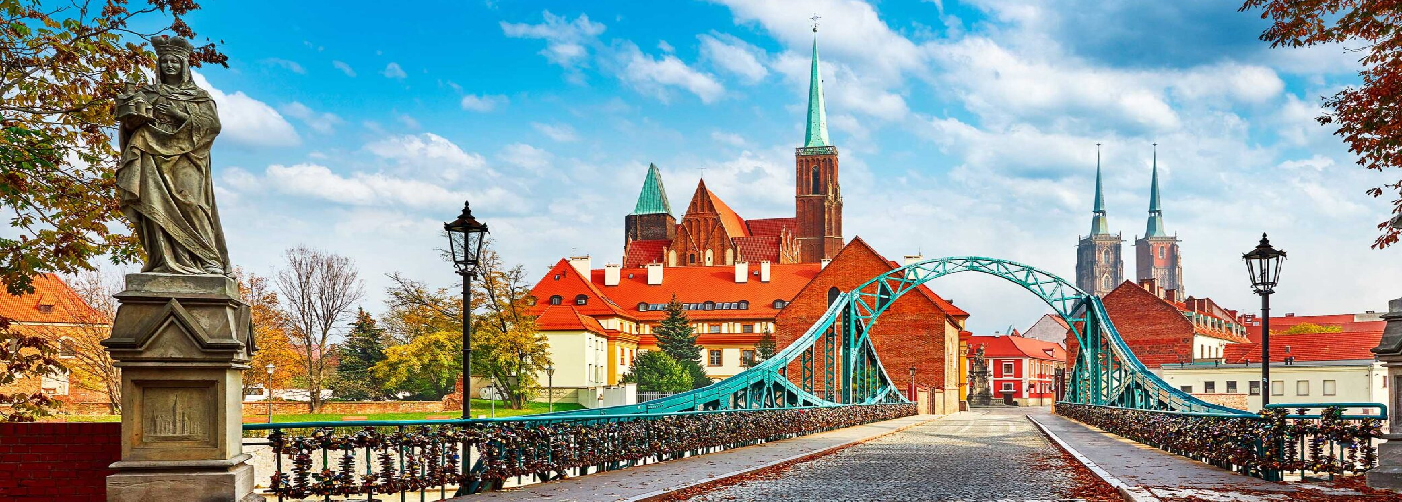- Affordable Tuition Fees: Poland offers relatively low tuition fees compared to other European countries. It’s one of the most affordable study destinations in Europe.
- High-Quality Education: Polish universities have a strong reputation in Europe and globally. Many universities are listed in international rankings, and the country follows the Bologna Process for higher education, ensuring that degrees are internationally recognized.
- English-Taught Programs: Poland offers a wide range of programs in English, particularly at the postgraduate level, which makes it an attractive option for international students.
- Cultural Diversity: Poland is a safe and welcoming country with a rich history and culture. It’s also well-connected to other European countries, making travel and exploration easy.
- Work Opportunities: International students can work part-time while studying, and there are options for post-study work visas.
Undergraduate Programs:
- High school diploma (equivalent to the Polish matura exam).
- Proof of English proficiency (IELTS 5.5 – 6.5 or TOEFL 70 – 90).
Some programs, especially in fields like medicine and architecture, may require entrance exams or portfolios.
Postgraduate Programs (Master’s & Ph.D.):
- A relevant undergraduate degree from a recognized institution.
- Proof of English proficiency (IELTS 6.0 – 7.0 or TOEFL 80 – 100).
- A Statement of Purpose (SOP), CV, and letters of recommendation.
- Some programs may require a research proposal or a portfolio (for creative disciplines).
| Scholarships for International Students |
- Polish Government Scholarships: These scholarships are available for students from various countries and can cover tuition and living expenses.
- Erasmus+ Scholarships: Available to students from EU countries for study or internship mobility programs.
- University-Specific Scholarships: Many Polish universities offer scholarships for international students based on academic merit or financial need.
- Visegrad Scholarship Program: A scholarship program for students from Central European countries that provides support for studies in Poland.
| Work Opportunities for International Students |
- EU/EEA Students: Can work without restrictions during studies.
- Non-EU Students: Can work up to 20 hours per week during the academic year and full-time during university holidays.
- Hourly Wage: The average wage is around €5 – €8 per hour.
- Common part-time jobs include working in restaurants, retail, tutoring, or as research assistants.
-
Post-Study Work Visa: After completing a degree in Poland, international students can stay in the country for up to 9 months to look for a job related to their field of study.
-
Job Market: Poland has a growing economy, with demand for professionals in sectors like IT, engineering, healthcare, business, and finance. Many international students find work in these fields after graduation.
After securing a job, students can apply for a work permit or residence permit.
|
- Engineering & Technology (Mechanical, Civil, Electrical, IT, etc.)
- Business, Management & Economics
- Computer Science & Artificial Intelligence
- Medicine, Dentistry & Pharmacy
- Social Sciences & International Relations
- Art, Design & Architecture
- Law & Political Science
- Biological Sciences & Environmental Studies
| Cost of Studying in the Poland |
Tuition Fees:
- Bachelor’s Degree: €2,000 – €6,000 per year for non-EU students.
- Master’s Degree: €3,000 – €8,000 per year for non-EU students.
- Ph.D. Programs: €2,000 – €5,000 per year for non-EU students.
EU Students: Tuition fees are typically lower for EU students, and many public universities offer EU students lower rates or even free education in some cases.
- Living Expenses:
- Accommodation: €150 – €500 per month (depends on location and type of accommodation).
- Food & Transport: €200 – €350 per month.
- Health Insurance: €50 – €150 per year for non-EU students.
- Total Monthly Costs: €500 – €800 per month, depending on lifestyle and location.
- EU/EEA Students: Do not need a visa to study in Poland.
- Non-EU Students: You will need to apply for a student visa (Type D or residence permit). The required documents typically include:
- A valid passport.
- An acceptance letter from a Polish university.
- Proof of sufficient funds (around €300 – €500 per month).
- Health insurance.
- Proof of accommodation.
- Visa fee (€60 – €100).
Visa Processing Time: 4 – 8 weeks, depending on the country.
| Pathway to Permanent Residency |
- Temporary Residency: After studying and working in Poland for several years, graduates may be eligible to apply for a temporary residence permit.
- Permanent Residency (PR): After living in Poland for at least 5 years with a work permit, you may be eligible for permanent residency.
- Citizenship: After living in Poland for 10 years, you may be eligible for citizenship, provided certain conditions are met.
|








